Multigenerational Working and Hearing Health
- davidmiller917
- Jul 7, 2025
- 3 min read
Updated: Jul 8, 2025

Multigenerational Working & Hearing Health: The Silent Link to Connection and Productivity
Multigenerational workforces is an important topic which deserves the attention. There are many benefits a multigenerational teams brings: a rich blend of experience, innovation, and collaboration. But there's one factor quietly undermining our efforts toward inclusion and performance, hearing health.
With more people working later in life and more ears than ever under daily strain from headsets and headphones, it’s time we asked is hearing health getting left out of our workplace wellness strategy?
Why Hearing Health Matters More Than You Think
Hearing is the gateway to communication, social interaction and employee engagement. Yet, hearing is never thought of enough by many to actually do anything about. Most people associate hearing tests with hard hats, drills, and construction zones. But what about the quiet offices, with video calls and team meetings where our hearing is essential?
Hearing health affects:
Workplace inclusion: Struggling to hear makes people withdraw from conversations and miss cues - leading to isolation and misunderstandings.
Mental wellbeing: Unaddressed hearing difficulties is known to increase anxiety, depression, and fatigue.
Collaboration across generations: Every age group communicates differently - but hearing challenges can add friction and silence perspectives that matter.
Communication/productivity: Hearing difficulties can disrupt day-to-day interactions which can lead to errors, delays, and frustration across teams.
Our offer at Workplace Ear Care? Hearing tests at work for everyone who values proactive wellbeing just like we do with our eyes and teeth. It’s not just for those who work in noisy situations.
Breaking the Myth: It's Not “Too Early” or “Too Late”
There are often assumptions made across different generations when it comes to hearing. “You’re too young to have a hearing loss”, or “you’re not hearing me because you’re old”. Supporting hearing health is not a tick-box exercise, it’s something we should have been doing way before now to support our employees
For younger employees, it’s about prevention and awareness. Earbuds, concerts, commutes - these all add up.
For older employees, it’s about dignity, productivity, and keeping their voices in the room.
Your quietest employees might be the ones silently struggling the most.
Hearing tests within the workplace are a fantastic opportunity to discuss and normalise hearing health across all ages at work. Talking about our hearing health, educating and allowing individuals to understand their hearing really helps to normalise the process and reduce stigma attached to aging and hearing loss.
What You Can Do Today
Small changes can spark powerful results. Start by making hearing health part of the conversation. Here’s how:
Promote hearing tests as part of general physical health initiatives - these are not a medical requirement but rather a way to know and understand our ears and hearing.
Highlight the social and emotional side of hearing in your wellbeing campaigns.
Create psychologically safe spaces where employees can share challenges without stigma.
Model proactive care - leaders who talk openly about hearing health and take action help to shift the workplace narrative.
A Culture That Hears Everyone
When hearing health becomes part of how you support your team, it’s not just about avoiding problems. It’s about building a workplace that truly listens, in every sense of the word.
It’s time to move on from the old narrative that hearing challenges only affect older adults or those in noisy environments. The reality is that hearing touches every corner of your culture: how people connect, collaborate, and feel included.
And by providing accessible hearing tests for all employees not because they “must,” but because they matter, you’re setting a new standard for what inclusive leadership sounds like.
Click here to request a call back to find out more about Workplace Ear Care and how we can help you.
Written by Nicola Miller BSC MSHAA, Director and Clinical Lead at Workplace Ear Care.
Nicola is an Audiologist with 15 years of experience working in both the NHS and private sectors






